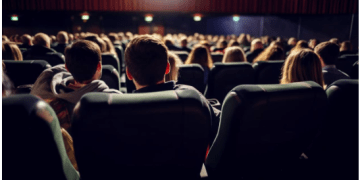President of Nintendo, Shuntaro Furukawa, said they are being cautious with using AI in game development because of ‘issues with intellectual property rights’.
Artificial Intelligence (AI) has been apart of video games since the start, but its role in game development has escalated very quickly in recent years, with Xbox starting to use AI tools for ‘dialogue, story and quest design’.
Other big publishers, like Ubisoft and EA, have also been quick to jump on the band wagon, with the latter claiming it is ‘deeply embracing’ AI as it predicts the technology can help it to be 30% more efficient in the future.
But while others embrace AI, Nintendo has taken a firm stance on the opposite side of the line, worried that it could have implications on first party IP rights.
In a recent Q&A with investors, Nintendo president Shuntaro Furukawa laid out the company’s vision on using generative AI in their games, saying:
‘In the game industry, AI-like technology has long been used to control enemy character movements, so game development and AI technology have always been closely related.
‘Generative AI, which has been a hot topic in recent years, can be more creative, but we also recognise that it has issues with intellectual property rights.
‘We have decades of know-how in creating optimal gaming experiences for our customers, and while we remain flexible in responding to technological developments, we hope to continue to deliver value that is unique to us and cannot be achieved through technology alone,’ he said, translated by TweakTown.
It’s no surprise really, that Nintendo, which has a long history of suing people and companies that use their games without approval, errs on the side of caution when it comes to letting AI help in developing its games.
Its primary concern may be that, if it uses AI, which is trained on other companies’ intellectual property, then its position may be weakened when trying to stop others from using theirs.
Theoretically, AI could be very helpful with some of the video games industry’s problems, helping to curb the huge amounts of time and money it takes to make a AAA game today.
Apart from the legal concerns though there’s also the moral issue of people losing their jobs and concerns over the quality of the resulting work.
That’s not an issue that needs any more momentum, as we’ve seen in the past year, where the video games industry has been hit with a tsunami of layoffs that has seen over 10,000 people lose their jobs.
Nintendo’s cautious approach sounds even more reasonable when you consider that, while the West is laying people off at record pace, the Japanese company is hiring at an unpresented rate.
Email [email protected], leave a comment below, follow us on Twitter, and sign-up to our newsletter.
To submit Inbox letters and Reader’s Features more easily, without the need to send an email, just use our Submit Stuff page here.
For more stories like this, check our Gaming page.
MORE : Xbox use of AI could mean the end of game guides and YouTube videos
MORE : The Last Of Us co-creator Neil Druckmann says AI will ‘push the boundaries of storytelling’
MORE : 59% of developers say games industry is in ‘bad’ spot because of investors and bad management

Sign up to all the exclusive gaming content, latest releases before they’re seen on the site.
This site is protected by reCAPTCHA and the Google Privacy Policy and Terms of Service apply.





